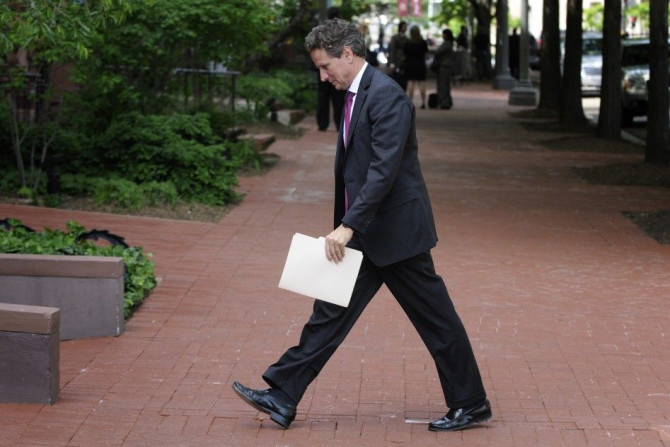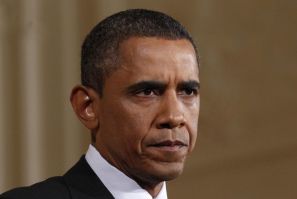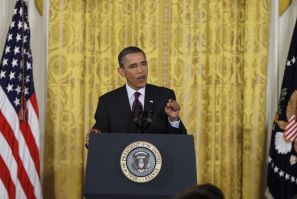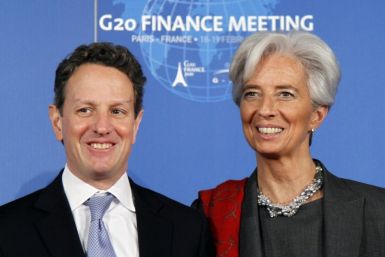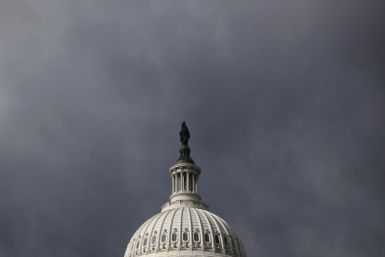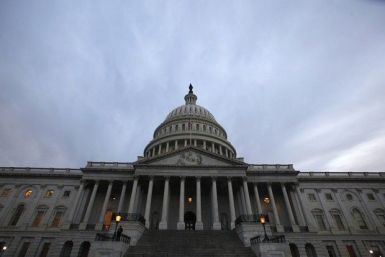Talks to modernize India's financial sector and allow major retailers like Wal-Mart into the country's vast consumer market opened on Tuesday between top U.S. and Indian financial officials.
The United States has officially declared its endorsement of France’s finance minister Christine Lagarde to be the next chief of the International Monetary Fund (IMF), virtually guaranteeing she will becomes its boss when its board meets next week.
French Finance Minister Christine Lagarde looks set to emerge on Tuesday as the International Monetary Fund's new chief, maintaining the tradition of a European heading the global lender.
If your adjusted gross income is under $250,000, you may get a reprieve, if the Obama administration's latest deficit reduction proposal becomes law after debt ceiling talks have concluded. The administration is now said-to-be seeking to increase taxes on a narrow slice of the mega-rich, such as owners of private jets.
It's been said that Congress doesn't react unless American voters compel it to do so. Well, U.S. Treasury Secretary Timothy Geithner is imploring Congress to 'get ahead of the curve,' on the budget deficit / debt ceiling issue, as the consequences of not acting could be enormous: it would leave the U.S. vulnerable to rising interest rates, if the Greece debt situation triggers another financial contagion.
Large banks are crafting their strategy to get regulators to back off from tough talk that they may force the riskiest firms to hold twice as much capital as smaller banks.
A default would have severe reverberations in global markets, a top Federal Reserve official said just hours after Fitch Ratings warned it could slash credit ratings if the government misses bond payments.
A U.S. default is the biggest risk facing the global economy, a top Federal Reserve official said just hours after Fitch Ratings warned it could slash U.S. credit ratings if the government delays bond payments.
U.S. Treasury bonds, seen worldwide as the risk-free investment, could be labeled junk if the government misses debt payments by August 15, credit agency Fitch Ratings warned on Wednesday.
The United States probably wouldn't be able to maintain its prized AAA sovereign ratings status if it suffered even a technical default on its debt, Fitch Ratings said on Wednesday.
The Treasury said on Thursday it reached an agreement to sell its remaining 6 percent equity stake in Chrysler to Italy's Fiat in a deal that will net Washington $560 million.
Moody's Investors Service said Thursday there is a very small but rising risk of a short-lived default by the United States if the country's debt limit is not increased in coming weeks.
Treasury Secretary Timothy Geithner meets an influential group of freshman Republican lawmakers on Thursday to try to improve chances that Congress will increase his borrowing authority and prevent a government default.
Twelve big U.S. companies paid far less than the statutory corporate tax rate from 2008 to 2010, despite making substantial profits in that period, said a report released on Wednesday.
Solutions to fix the mess the U.S. housing finance system are months if not years away, but U.S. Treasury Secretary Timothy Geithner will likely reiterate his view to Congress on Wednesday that the United States must make that system more efficient, resilient and less complex.
Congresswoman Mary Bono Mack, R-CA, said Friday she would vote against raising the U.S. debt ceiling, saying it was wrong for the nation to continue piling on debt.
The amount is half what Republicans have demanded, but progress is being made
New orders for U.S. manufactured goods posted their largest drop in six months in April after a steep fall in demand for transportation equipment, suggesting some cooling in factory activity.
New orders for long-lasting U.S. manufactured goods recorded their largest decline in six months in April as aircraft and motor vehicle bookings tumbled, indicating the economy remained stuck in a soft patch.
The next chief of the International Monetary Fund (IMF) will likely be one of two candidates, France Finance Minister Christine Lagarde (who has officially announced her interest in the job) and Mexico’s central bank governor Agustin Carstens, who is also lobbying for the sought-after position.
Treasury Secretary Timothy Geithner said on Wednesday that the economy will face crises after it recovers from the deep recession that officially ended in 2009, but they will be less severe.
Aren't you at all curious about who's behind this lynching by media scam? This is an all-out, no-holds-barred, steel-cage, take-down. The big boys save that kind of action for the worst offenders, that is, for the insiders who have broken Omerta or wandered off the reservation. Even Bernie Madoff was allowed to stay in his $7 million Park Avenue penthouse.


